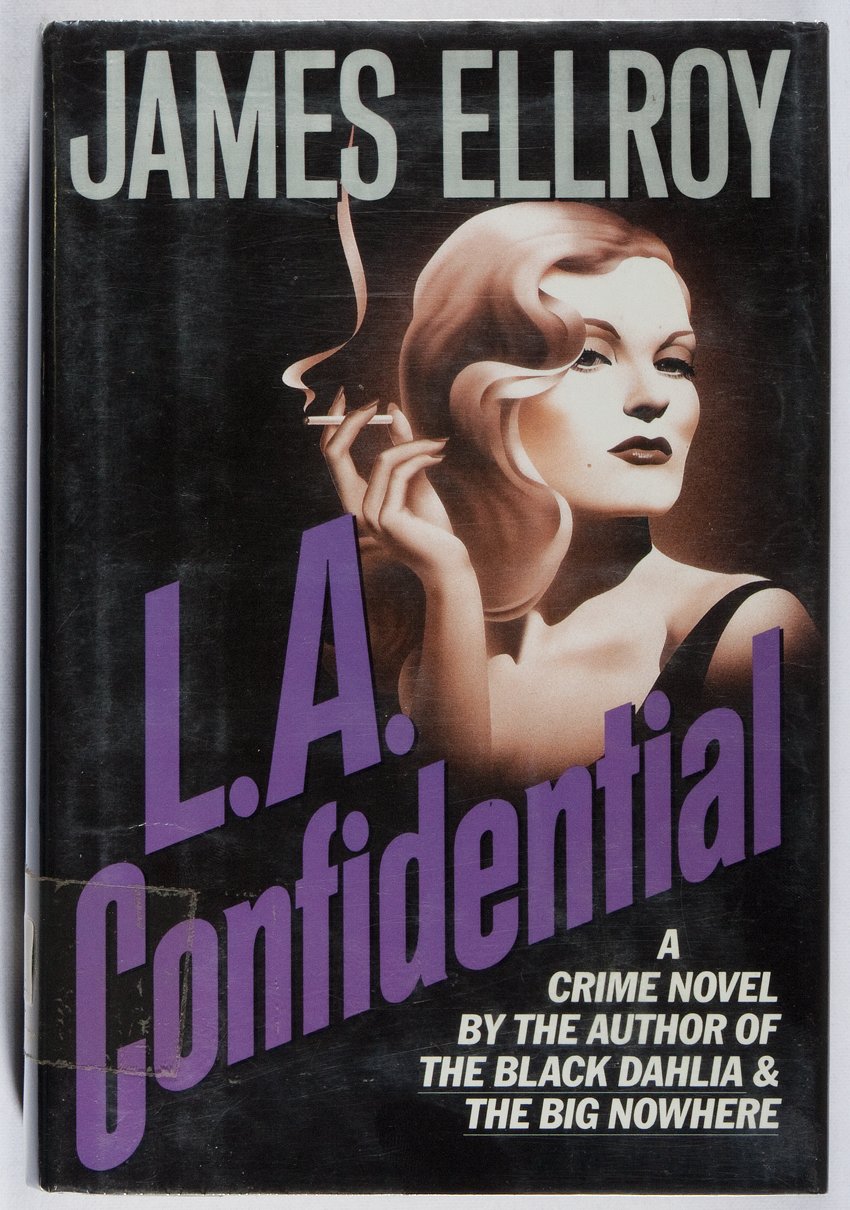Adverb: Difference between revisions
Amwelladmin (talk | contribs) No edit summary |
Amwelladmin (talk | contribs) No edit summary |
||
| (5 intermediate revisions by the same user not shown) | |||
| Line 1: | Line 1: | ||
{{a|plainenglish|}}{{d|Adverb||n|}}{{quote|“Using adverbs is a mortal sin.” | {{a|plainenglish|{{image|LA confidential|jpg|James Ellroy. No truck with adverbs.}} }}{{d|Adverb|/ˈædvɜːb/|n|}}{{quote|“Using adverbs is a mortal sin.” | ||
:— Elmore Leonard}} | :— Elmore Leonard}} | ||
A word you use when you can’t think of a better [[verb]]. A good writer’s | A word you use when you can’t think of a better [[verb]]. A good writer’s ''capitulation''. | ||
An {{tag|adverb}} ''modifies'' a {{tag|verb}}. It makes it stronger, weaker, more or less specific. Most end in ~ly, but not all do: “now”, “later”, “still” “again” “moreover”, “further”, “also”, “besides”, “too” can all function as adverbs, but note how ''redundant'' they tend to be: | |||
“I will see you ''later''”; “I am ''now'' reading”; “I have some ''further'' thoughts” — they render phrases idiomatic, but add no semantic content. | |||
You can make [[adverbial phrases]], ''too'', like “on top of”, “over and above”, “into the bargain”, “by the same token” and so ''tiresomely'' (<-- also an adverb) on. | |||
===Writing hack=== | |||
Therefore, a writing hack: if you are labouring with any prose passage, try removing all adverbs, and strengthening the verbs. | |||
“Jane '''struck the ball firmly''' through the covers and '''proceeded quickly''' to the non-striker’s end.” | “Jane '''struck the ball firmly''' through the covers and '''proceeded quickly''' to the non-striker’s end.” | ||
“Jane ''' | “Jane '''spanked''' the ball through the covers and '''galloped''' to the non-striker’s end.” | ||
We call this the “James Ellroy oblique strategy”: the crime writer | |||
stumbled upon it when his editor told him to cut 100 pages from his ''L.A. Confidential'' manuscript. Adamant that removing any characters or plot-lines would kill the story, Ellroy combed the draft nixing every adverb, most adjectives and many verbs, in the process creating a distinctive style he’s stuck with ever since. | |||
{{Sa}} | |||
*[[Adjective]] | |||
Latest revision as of 15:52, 11 September 2023
|
Towards more picturesque speech™
|
Adverb
/ˈædvɜːb/ (n.)
“Using adverbs is a mortal sin.”
- — Elmore Leonard
A word you use when you can’t think of a better verb. A good writer’s capitulation.
An adverb modifies a verb. It makes it stronger, weaker, more or less specific. Most end in ~ly, but not all do: “now”, “later”, “still” “again” “moreover”, “further”, “also”, “besides”, “too” can all function as adverbs, but note how redundant they tend to be:
“I will see you later”; “I am now reading”; “I have some further thoughts” — they render phrases idiomatic, but add no semantic content.
You can make adverbial phrases, too, like “on top of”, “over and above”, “into the bargain”, “by the same token” and so tiresomely (<-- also an adverb) on.
Writing hack
Therefore, a writing hack: if you are labouring with any prose passage, try removing all adverbs, and strengthening the verbs.
“Jane struck the ball firmly through the covers and proceeded quickly to the non-striker’s end.”
“Jane spanked the ball through the covers and galloped to the non-striker’s end.”
We call this the “James Ellroy oblique strategy”: the crime writer stumbled upon it when his editor told him to cut 100 pages from his L.A. Confidential manuscript. Adamant that removing any characters or plot-lines would kill the story, Ellroy combed the draft nixing every adverb, most adjectives and many verbs, in the process creating a distinctive style he’s stuck with ever since.
